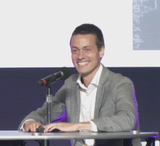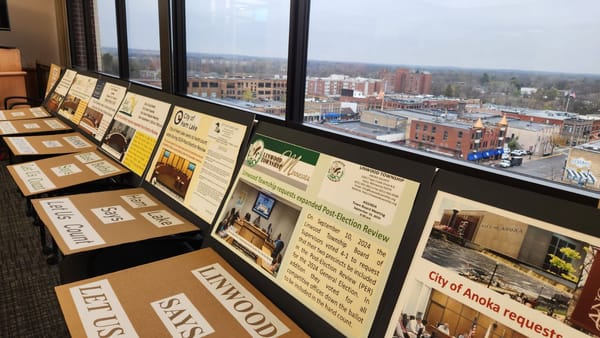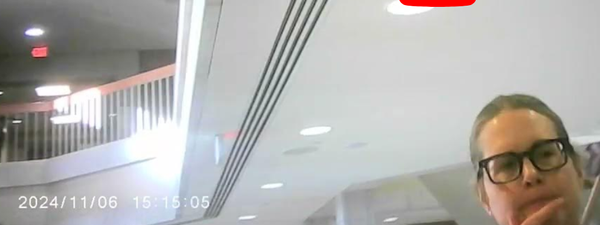The Waning of the Wire to Wire Career
Notes on Fernando Flores's "Entrepreneurship and the wired life: Work in the wake of career"

My father worked in one industry from the moment he finished his geology degree to his retirement four years ago. Not only is a career--which provides benefits economically, socially, and at an individual level in terms of identity and meaning--in decline, but also full-time employment, particularly in the knowledge sectors of industrialized economies, has also become an endangered species.
This trend seems obvious now, but Fernando Flores, former finance minister of Chile, predicted the decline of the career as an institution 20 years ago in his book, "Entrepreneurship and the wired life: Work in the wake of career".
Early on, he and co-author John Gray state: "The corrosion of this institution is the principal economic challenge facing the working majority in late modern societies."
The short book begins with a discussion of the career as an institution, why careers matter and why they are in decline, moving into new forms of working life--the wired and the entrepreneurial--and concludes with policy in the wake of careers.
There are two primary moral hazards attached to the decline of the career. First, by undermining people's ability to choose stable and meaningful employment, it endangers the liberal values that modern market economics are meant to embody. Simultaneously, along with increases in labour mobility and the corrosion of many traditional values, the decline weakens the ties of local social cohesion on which such economics depend. Over time, these moral hazards could represent political risks for parties of the centre-left, which have in recent times attracted increased middle-class support. Even in the absence of a major economic setback, disillusioned middle classes are fertile grounds for a comeback of the right.
Leaving aside an analysis of how prescient this thinking appears in our current political context, I was particularly drawn to the idea of decreased local and civic connection, something I decided to do something about last year by starting a discussion group, at first among friends and later with strangers, a decision which has enabled new personal relationships in Minneapolis and Saint Paul. Elements of this group bloomed into a creative process workshop series, a kind of community curriculum in the spirit of "A Pattern Language" by Christopher Alexander.
In the "wired" form of work, which I transcribe loosely as the project-based or gig economy, Flores notes that the "lives of wired people are more like collections of short stories than the narrative of a bourgeois novel", and, in other words, "spontaneity in responding to the current situation, rather than continuity of projects and relationships, becomes the test of personal authenticity". A sea change from poet William Wordsworth's vision of authenticity as "leading a life focused on bringing out what made an individual's life (over its whole expanse) most meaningful", as opposed to reaching for what is at arm's length only today.
For example, digital nomadism is a logical symptom of the future Flores and Gray predicted; workers, usually without restrictive family ties or children, with enough skills to participate in the knowledge economy, take a few years to see the world, setting up shop at hostels or Airbnbs. Since these nomads are not working in the context of a career, they don't risk missing out on promotions nor advancement. And yet, separate from a local community with which to strengthen social ties (aside from other nomads), their communities back home might be missing them. (I would distinguish digital nomadism from remote work, which is ubiquitous for separate reasons, the global internet-connected workforce top among them.)
In the context of career decline, the ethical discussion relating to working lives as domains of "self-invention or existential choice" piqued my attention most acutely. It made me ask personal questions about the role of work in my life, to what activities I mentally categorize as such, and what grounding I might find having five years prior at age 27 given up on a formal career. Could my feeling of meaningful struggle in my writing work suggest a possible foil to the wired life, primarily marketing and sales content marketing, that I've adopted? Might it even, with enough attention, be a portal or backdoor into a vocation in writing? And by writing here, I mean, the hard work of thinking, the careful work of composition, the diligent work of revision and editing that ultimately provides the reader something with which to wrestle.
Having previously, for years, embraced notions of excitement and creativity, I'm of late noticing the benefits of certain kinds of commitments--I was married last year--and am persuaded by yet another poet's formulation, that of David Whyte, elucidated in his "The Three Marriages: Reimagining Work, Self and Relationship":
The current understanding of work-life balance is too simplistic. People find it hard to balance work with family, family with self, because it might not be a question of balance.
Reading this sentence from within the context of a career and a non-career working life offer varying outputs.
Since Nietzsche declared that God is dead (and we have killed him) we have out of necessity sought new sources of meaning. Personally, I have many times strayed from awe (whether found in art, literature, landscape, or elsewhere), but when I settle into it, I find momentary peace. In a world where our traditional religious structures are floundering, we could at least depend, from the end of World War II until the last thirty years or so, on stable careers (or to an aspiration thereof). This too, for many, is retreating to the realm of fantasy.
Flores and Gray do offer a possible way forward: the entrepreneurial life. They define it carefully, which we might do well to remember in 2020, "Though some have tried to assimilate entrepreneurship with exploitative arbitrage, its creativity in the production of new institutions draws on the same creative energies and practices as those of political activists and cultural workers. The difference among entrepreneurs, political activists and cultural workers amounts to the different intuitions they have about social anomalies which inspire their innovations."
In other words, for entrepreneurs, "a meaningful life involves much more than the expression of personal capacities. It encompasses renewing the life of the community--through some new product or service, a political achievement such as a law or an institution, a cultural event or a new type of social service."
The final section of the book covers policy, beginning first with an examination of pensions and finance and then moving into education. The point is well made that "many of the inherited policies and institutions in Western societies have been shaped to fit the career as the central form of working life". Schools and tax systems make assumptions about the knowledge that ought to be learned and the style of employment one might attain. I've personally predicted sharp declines in the sizes (or number) of universities. In my personal case, it is possible the friendships made--ten of us still have regular video calls and yearly reunions--outweigh the returns of my official degree. I would probably still have gone to college, back in 2006, but I doubt my kids will attend college in the traditional and residential sense, at least if they are merely aiming to participate in the knowledge economy as it exists today.
You too might find yourself nodding along to phrases such as "our current educational, vocational and corporate cultures orient people to become takes of requests who solves problems." Flores and Gray suggest that "in this world, people need to make offers to potential employers, to the market or to their communities. Developing such offers is the first step towards creating enterprises, and learning how to develop offers is the first priority of education."
How one architects an educational approach to teach or allow space for such skills to develop is a serious and ongoing question, even two decades later.
The personal question I leave the book with is this: How might a writer take onboard an entrepreneurial approach to his work or vocation, keeping in mind Flores's and Gray's particular definitions of the entrepreneurial life?




